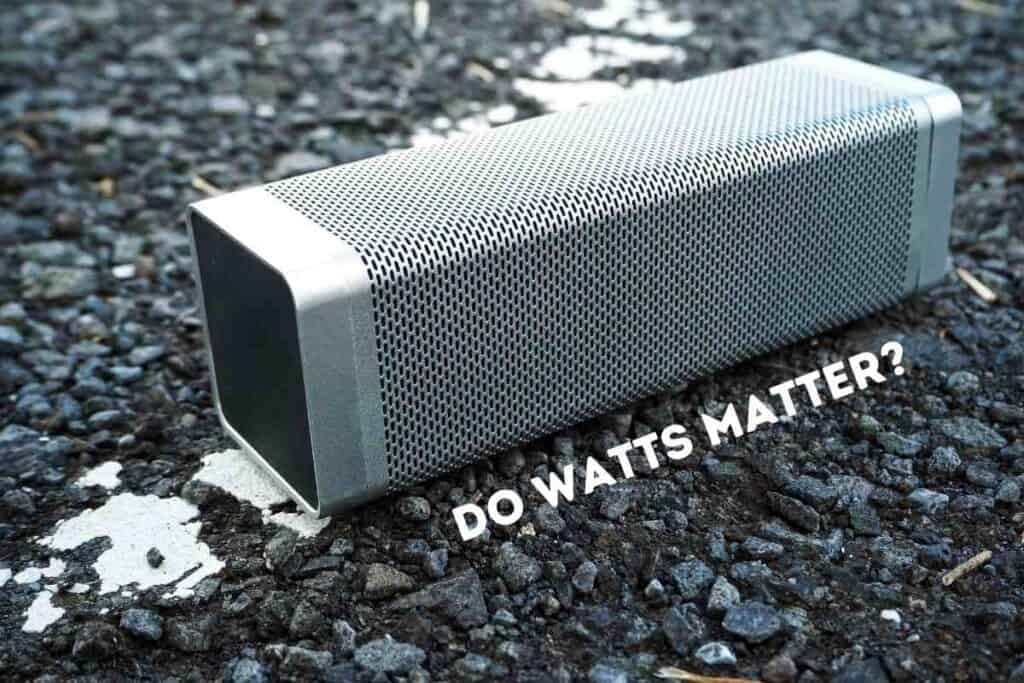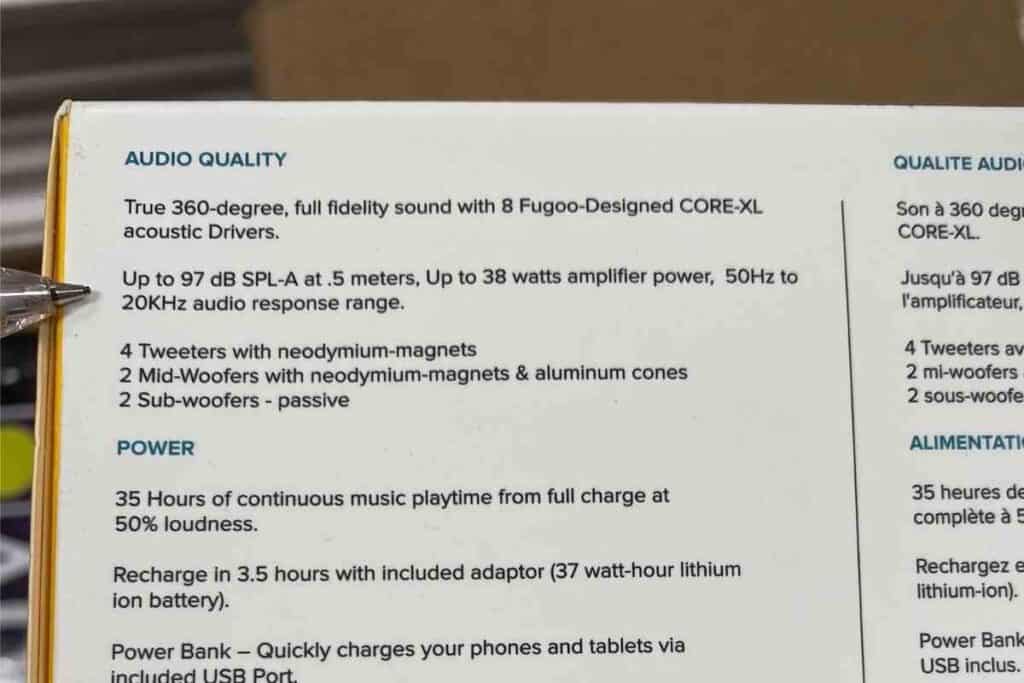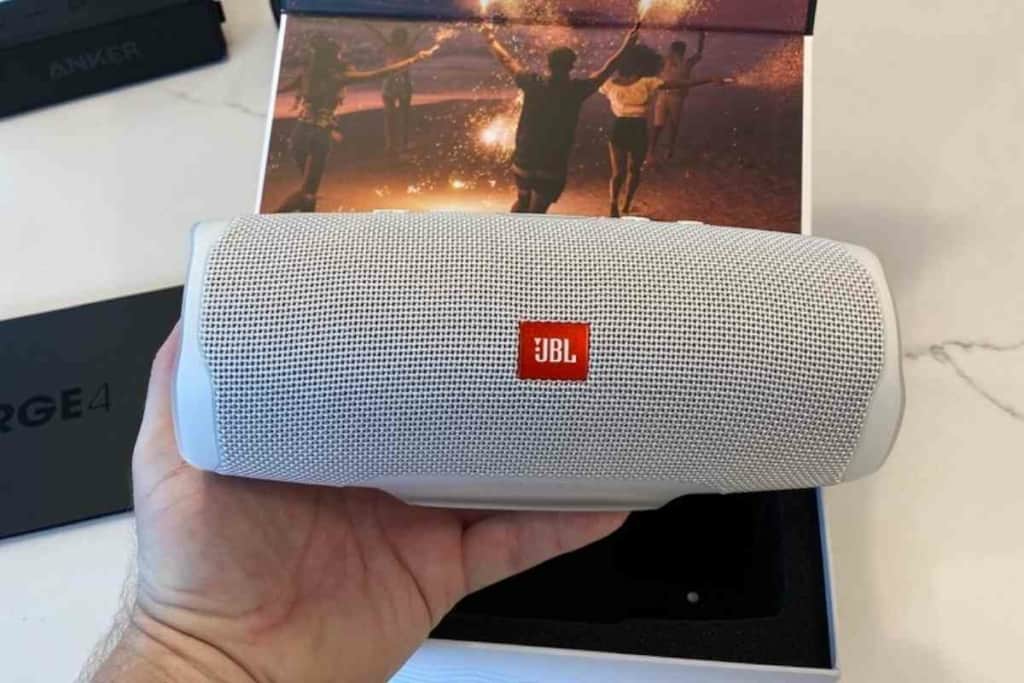How Many Watts Is A Good Speaker?
Wondering how many watts make a speaker stand out? Let’s dive into the world of audio power, exploring what wattage means for your listening experience and how to choose the right speaker.
Does wattage affect the loudness and clarity of a speaker? Should you go for a high watt rating and overlook the speaker’s audio quality? How many watts make a good speaker?

How Many Watts Is A Good Speaker?
The best wattage for the home speaker is between 15 and 30 watts. Most homeowners find 20 watts sufficient enough. A speaker for larger gatherings can be 50 watts or 100 watts. Such high power will not be ideal for home use.
There is so much more that affects the wattage and its importance in a speaker, including sensitivity.
The challenging issue with speaker wattage is that it lacks a specific definition. You can see it as the total power that a speaker can handle from the amplifier or see it as the amplifier power that a speaker needs. Some users associate watts with how loud a speaker sounds.
When shopping for a speaker, ensure that you do not match it with an amplifier whose output capability surpasses the wattage of the speaker.
You will have better quality sound and your speaker will be safer when the amp is at or below the power rating of the speaker. Again, if you play the speaker so loudly that you hear distortion, it might end up burned.
You need to understand the best wattage for excellent sound performance. While you may consider loudness, it is also important to consider the quality of the sound.
The efficiency of a speaker, the number of speakers connected to an amplifier, and distance of the speakers from each other affect the loudness and quality of sound.
Even with all these factors, anyone who holds parties and events at home or away needs more wattage.
Having more amplifier and speaker power means that your speakers can play loud without distortion. If loudness matters to you, go for a high-wattage speaker, up to 100 watts, as this allows you to listen to clean audio.
If you listen to audio at moderate sound, you do not need to worry about the power rating of your speaker.
Most people will find 20 watts enough. Some manufacturers offer high-watt speaker, but with poor sound quality.

It is easy to come across speakers rated 110 watts, but their quality at high volume is poor. You may find others rated 10 watts of less, but with good quality. Wattage comes cheap, but quality comes very expensively.
If you go for very sensitive speakers, they will manage to produce high quality audio even with low power.
What are Decibels and Levels And How Do They Affect Wattage in Speakers?
Decibels, dB, refer to the loudness of a speaker. These decibels are a logarithmic unit of loudness, which means that a small increase in number can mean more increase in the loudness.
For instance, when the loudness of a speaker increases from 40dB to 80dB, the decibels will have doubled, but the perceived sound will be way much more.
A doubled number in a logarithmic measurement unit doesn’t necessarily mean that the quality is twice as much. Instead, the quality will be much more than double the number.
The Sound Pressure Level, SPL, indicates the loudness of a speaker. A 10dB increase in the loudness of a speaker might mean that the perceived loudness doubled.
If the SPL of a speaker is increased from 50dB to 60dB, the perceived sound will appear to have doubled.
When shopping for a speaker, you might want to know what it takes to enhance the loudness of a speaker.
Assume you have two amps; one has a power rating of 10 watts and the other 20 watts. From the rating, it appears that the second amp has double the power of the first.
However, when the power doubles, the SPL only increases by 3dB.
To have a speaker that sounds twice as loud as a 10 watts speaker, you need a 10dB increase. Granted, the second 20-watt amp will be a little loud than the first 10-watt amp, but it will not produce twice as much sound as the first.
This also holds true for high wattage. If you have two speakers, one is 100 watts and the other is 50 watts, the first will have twice the power of the second. However, when you double the power of the amp and speaker, you only get an increase of 3dB SPL.
Does Speaker Sensitivity Affect Wattage?
The sensitivity of a speaker affects how clear its sound is at high volumes and low wattage. Sensitivity refers to the ability of a speaker to convert the electrical energy that comes to them into acoustical energy.
Most modern Bluetooth speakers are highly efficient unlike dynamic moving coil speakers in bass amps. An efficient speaker should convert most of the energy to audio energy and not heat.
The sensitivity of a speaker will appear as something like 80dB at 1W/1m.
The rating above means that the speaker offers 80 decibels with one watt when measured a distance of one meter from the speaker. Less efficient speakers have a lower number.
If a speaker is highly sensitive, it will only require a small amount of power to produce loud sound and be clear.
Less sensitive or less efficient speakers could have a high wattage and still produce low volume and distorted sound. Granted, you need better quality speakers and not necessarily high wattage speakers.

What Do All These Numbers Mean?
Assume you have a speaker with a sensitivity rating of the 80dB at 1W/1m and has a power rating of 90 watts. With such a speaker, you get 80dB when you power it with 1W and you measure at a distance of 1m.
If you double the power that goes to the speaker to 2W, the SPL will increase to 83dB. If you multiply the original power by ten, so the speaker is powered by 10W, the SPL increases to 90dB. An increase of 10dB means twice as much as the perceived sound.
Some speakers can handle more power that their rating. You can increase the SPL measure of a speaker by increasing the power that goes to the speaker.
From the above example, you see that it takes so much power, wattage, to double the perceived loudness of a speaker.
You can, therefore, choose wattage depending on how loud you need your speaker to be. However, if your speaker is less sensitive, it will still produce a less SPL measure even at high power.
If you need a speaker that operates excellent at low power, you need one that is more sensitive. You can switch the 80dB at 1W/1m speaker with a 100dB at 1W/1m speaker. Such a speaker will give you 100dB with 1 watt of power. This is more than what the first speaker generated with 10 watts.
The Challenge With Reading Power Handling Capacity of a Speaker
There are many more factors to consider than wattage when buying a speaker. The speaker’s power rating does not indicate whether it works for the maximum continuous, average, or peak level. It also doesn’t state how long the speaker sustains the power and with which materials.
Different authorities set the standards for speaker power handling rating. These authorities include Electronics Industries Alliance, Audio Engineering Society, and the International Electrotechnical Commission.
The different rating standards confuse the end user, and that is why most people do not understand wattage and how it is arrived at.
Some manufacturers do not follow the standard and rate speakers based on an informed guess. If you listen at average levels, a 10-watt speaker will have the same sound as a 200-watt speaker. In such cases, only one watt powers a speaker.
If you only listen to your speaker at comfortable volumes, you never have to worry about the wattage as the amp will never use more than 20 watts.
This means that even if you have a 1000-watt amp, you can connect it into a 50-watt speaker as long as you do not increase the volume beyond what the speaker can handle.
Share Your Thoughts, Experience or Questions
Join the conversation! Share your thoughts, experiences, or questions in the comments below, and be a part of our tech-savvy community.
Closing Thoughts
In summary, you need more wattage if you need to crank up the volume of the speaker. However, if your speaker is highly sensitive, it doesn’t need to be high-wattage. You not only need a speaker that plays loud audio, but one whose audio is clear.
Your Bluetooth speaker should have high quality sound at any volume. The amplifier you use will determine how loud you can crank up the speaker. To keep your speaker safe, ensure that the amplifier is the same wattage as the speaker.
If the amplifier has a higher wattage, avoid turning the volume all the way as that might damage the speakers. Even as you consider wattage, consider other factors such as durability, form factor, affordability, and sensitivity of a speaker.